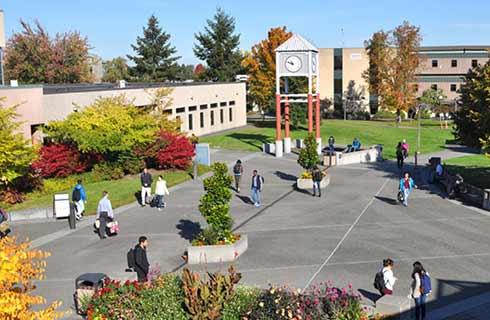国际学生入学条件
All applicants must submit an official transcript showing proof of at least a Bachelor’s Degree from a regionally accredited university or college, with a GPA of at least 3.0, preferably, but not limited, to psychology, education, or a related field. applicants must submit transcripts of all prior academic work, two to three letters of recommendation on the recommender’s stationery (at least one, when possible, from a professor, who can describe candidates academic preparation for graduate school), a statement of personal and professional goals, objectives, and paid and unpaid work history related to education and/or mental health. The personal statement must include information regarding applicants' experiences related to working with people from culturally and/or ethnically diverse groups. A resume is also required. Experience working with school aged children (voluntary or paid) in an educational setting is preferred.
Have a four-year baccalaureate degree from a regionally accredited institution
Be in good academic standing at the last college or university attended
Have satisfied one of the following conditions:
Have a minimum cumulative GPA of 2.5 in all undergraduate units
Have a minimum GPA of 2.5 in the last 60 semester/90 quarter units from all post-secondary institutions
Duolingo English Test - 105
IELTS - 6.5, TOEFL Internet Based score - 79, TOEFL Paper-based score - 550
展开
IDP—雅思考试联合主办方

雅思考试总分
6.5
- 雅思总分:6.5
- 托福网考总分:79
- 托福笔试总分:550
- 其他语言考试:PTE Academic - 58
CRICOS代码:
申请截止日期: 请与IDP联系 以获取详细信息。
课程简介
The School Psychology Program in the Department of Educational Psychology and Counseling at CSUN is geared for students who have a background in education or psychology. Applicants who are interested in entering the exciting field of school psychology and who have worked as teachers, special educators, teacher assistants, or served in other professional or paraprofessional roles in the schools will be well suited for entrance into the program. The school psychology program at CSUN is a comprehensive, three-year full time Masters of Science degree program. Students applying will be seeking both a Masters of Science in School Psychology degree and an Advanced Pupil Personnel Services Credential. Courses in the School Psychology program are offered primarily during the evening hours (4 p.m. to 10 p.m.), however, there may be occasional courses offered during the day. The mission of the school psychology program at CSUN is to prepare diverse culturally responsive school psychologists for careers within multidisciplinary school-based teams to help all students attain academic, behavioral, social, and emotional success through comprehensive and coordinated support delivery systems that provide prevention and/or appropriate interventions to help provide safe, healthy, and nurturing environments to support all students develop resilience and life success. To achieve this objective, candidates in the school psychology program use the systems ecological model to engage multi-systemic multi-tiered support to enhance developmental assets which lead to optimized life success for diverse populations. The school psychology program prepares candidates for the delivery of comprehensive school psychological services within the context of educational programs and educational settings, while emphasizing human diversity and social justice and advocacy. School psychology candidates are trained to have a background in psychological and educational theories in order to provide counseling, assessment, consultation, prevention and intervention services including academic, behavioral, emotional, and mental health needs in the schools, address school climate, school violence, and crisis intervention in the schools, and use ethics, law, and research to guide their practice. The problem-solving data-based decision-making process is emphasized in all aspects of service delivery, as well as the use of data and evidenced based interventions to maximize student success. Working at both the individual and systems level of service delivery, candidates develop the skills to facilitate collaboration among families, school personnel, and community members to create and maintain safe, supportive, and effective learning environments. They creatively use program evaluation methods, and culturally compatible educational, instructional, and program solutions to address barriers and address institutional biases that impede the learning process, social emotional adjustment, behavior, and life success of students. Through their development, candidates become competent professionals, life-long learners, innovators, social justice advocates, and leaders in the field.
展开







 预科
预科 奖学金
奖学金 实习机会
实习机会 在校学习
在校学习 跨境学习
跨境学习 校园授课-线上开始
校园授课-线上开始 在线/远程学习
在线/远程学习












 菲尔莱狄更斯大学
菲尔莱狄更斯大学

 北卡罗来纳大学教堂山分校
北卡罗来纳大学教堂山分校

 西伊利诺伊大学
西伊利诺伊大学

 洪堡州立大学
洪堡州立大学

 杜肯大学
杜肯大学

 贡萨加大学
贡萨加大学










